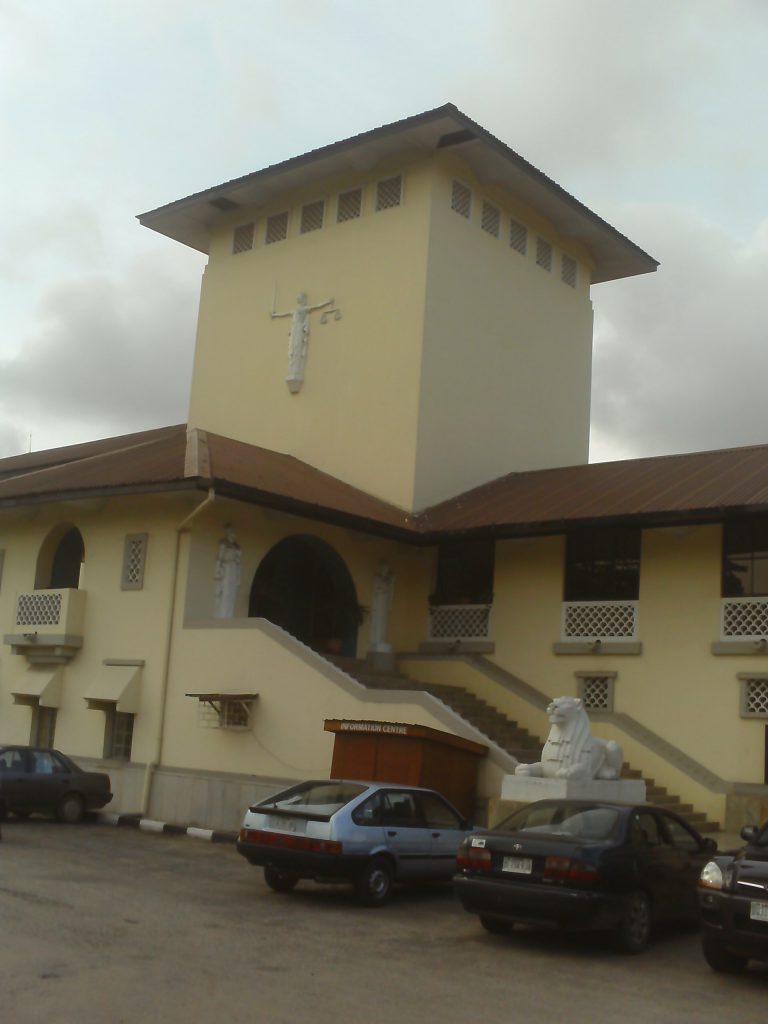Life has become so convenient that one can open a bank account on a facebook page. You can wake up at 1am and book a hotel room in Budapest, book and pay for a flight to Caracas, apply for university admission in England and even renew your cable TV subscription in Nigeria while you are in Sydney.

The interesting thing here is that, you can do all these things dressed only in your boxers holding a can of beer and sitting comfortably on the couch probably watching your favourite sitcom. The airlines have taken it further to allow you check in while still dressed like that.
In all these advancements, the legal profession in Nigeria seems to be the last in the class. While sectors across the world are investing huge resources to make life more convenient, lawyers and the judiciary in Nigeria are still laid back celebrating obsolete procedures as feats.
In 2012, there was a heralded introduction of e-filing in the Lagos state judiciary, as it took effect, the excitement went cold as lawyers discovered that there was nothing electronic about the filing. The process still required their presence in the filing room of the High Court.
When e-filing was launched, many lawyers equated the service to that of booking a hotel room, flight ticket or filing an online application but to their disappointment, it made the manual procedure more manual.
Before e-filing was introduced, the procedure for filing a court process in the Lagos High Court included endorsement of Process- Assessment- Payment (at a particular bank branch not mobile or online transfer) – Quoting – Stamping – Oathing – Teller photocopy – Submitting photocopies – Getting a suit number – Buying a file jacket at 500naira – Sealing – Arranging with the Sharif’s.
The introduction of e-filing introduced two more processes to the already cumbersome process by introducing scanning and temporary suit number without eliminating anything. The bad news is that Lagos is usually the pacesetter and if Lagos can’t get it right, the whole country will continue to wait.
E-filing is not the only bad news. The High Court civil procedure rules across the courts in Nigeria have metamorphosed over the years. In all these metamorphosis, nothing has been done to advance litigation and in fact so much has been done to kill it.
In Lagos in 2012, the rules introduced case management conference a.k.a mediation and did nothing to reduce the length of time a claimant waits for the defendant to file a defence, which is still a scary 42days or approximately 2months considering the computation of time.
The Multi-door courthouse is now more brazen in making sure that litigation lawyers begin a search for another job. In a case before it, the case manager wrote a letter straight to a defendant in a suit informing him of a mediation session which has already closed but re-opened without informing the defendants counsel.When confronted on the issue, all she had to say was that it was party driven thereby do not need the defendant’s counsel’s presence. That is scary. There are other practices in the mediation house which have proved to be direct unethical attacks on litigation which if ignored will finally prepare the hearse that will lead litigation to the cemetery.
Law practice in Nigeria is the most “paperful” occupation in Nigeria after the print media. That is old school.
Papers are still being used at all levels of practice even with the huge campaign by environmentalists to the save the earth. Half of the spaces in court are filled with papers filed in court when other organisations including the judiciary across the world are eliminating same.
Some years ago, the Nigerian law school introduced a kind of e-learning reducing the use of paper. That was good news but the bad news is that these young lawyers who are trained for the future only come out to practice in a system stuck in the past.
Many Nigerian lawyers do not have a functional e-mail address, that is; an e-mail address on the go. You still need to call many of them to inform them that you have sent them a mail.
Law practice in Nigeria has become more of a physical profession than an intellectual thing considering the amount of physical energy lawyers put into the practice of law. The big law firms are not even spared especially the ones in litigation.
The slow archaic system is always on the way to building a world class law practice or business of law which many of the firms choose to call it. (Practice or business, that will only be mere semantics if the system doesn’t change.)
The slow pace of justice dispensation in Nigeria has given the police force with its high perception of corruption an edge over the judiciary. Most people still prefer to settle their civil cases with the police. That pushes the profession closer to the brink.
Many cross border transactions in Nigeria prefer foreign courts as the resort for dispute resolution. It is my view that the inadequacies in our profession have made us insecure. Nigerian lawyers are still apprehensive about globalisation; I see it as a show of insecurity than desire for fair play. While many Nigerian law firms have presence in countries like the U.K, there is still a resistance by Nigerian lawyers to allow U.K law firms have presence in Nigeria. That is not fair.
Another red flag that points to the demise of the profession is the improved election which has made election petitions briefs less available. Many lawyers today are going by the name commercial or corporate lawyer, I think it is an ostrich approach out of the quagmire.
The gross disobedience of court orders has reached a frightening proportion as the ratings of the judiciary wanes as the last hope of the common man
Litigation cuts across all aspects of practice. If there is no litigation or prospect of one, the other aspect will be placed on nothing; of course we know what happens when something is placed on nothing. Many other agencies lawyers rely on to deliver their briefs like the C.AC, Land registry etc. continue to introduce cumbersome procedures and lawyers are keeping quiet.
Many lawyers in practice still consider themselves to be on transit in the profession until they get to the promised land of politics or corporate world. That is unfortunate.
By the time advancements in I.T fully overtake us, globalisation closes in on us,only mirage will be in view.The whole professional will now collapse and everybody will be buried in the debris


Well articulated..these fears are real even to those of us that are not in practise. May God help us.